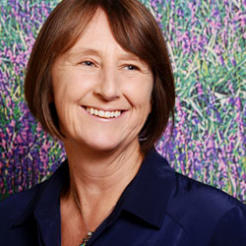Dawn Austwick, new chief executive of the Big Lottery Fund, has urged charities to carve a niche for themselves within the social investment market, warning them not to be frightened of the funding mechanism.
Austwick, most recently chief executive of social investment pioneer Esmée Fairbairn Foundation, told the Acevo annual conference this morning that charities were in a unique position to capitalise on the more altruistic section within the social investment market.
“There is a risk in social investment at the moment that the VCS organisations will get scared off of it," said Austwick.
Austwick's comments follow the revelations from BIG research late last year which found that 43 per cent of voluntary sector organisations were not interested in social investment finance as charitable money should be spent on delivery, not “repaying loans”.
The new BIG CEO, while emphasising the funder's role as a grantmaker, said charities could target investors willing to lose some financial gains in favour of achieving social good.
“I think there is a group of social investors who are mission-driven,” she said.
Austwick added that charities with assets, intellectual property and those which trade should investigate whether social investment funding could work for them.
“There is an opportunity. Seize it. Don’t be put off by a sense that it may not be for you.”
BIG has launched a number of funds this year in support of social investment, including a £40m fund to help public bodies pay returns on outcomes met through social impact bonds this year, and a £300,000 fund to support organisations who want to be listed on the Social Stock Exchange to produce social impact reports.
But its involvement in the social investment market has recently drawn criticism from an umbrella body chief executive.
BIG launches £75m programme to improve young people's mental health
Separately, BIG has launched a £75m programme for charities that work with ten to 14-year-olds at risk of developing mental health problems.
The HeadStart funding will be focused on 12 geographical areas where councils have been invited to form partnerships to run the scheme. Each council will be given £500,000 to develop a pilot programme.









